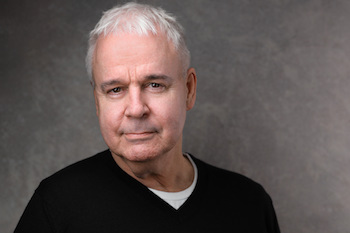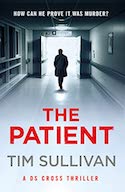
I’ve always written. I wrote and directed my first short film at university and the writing followed on from there.
I began writing screenplays with some success, starting in the late eighties with an adaptation of Evelyn Waugh’s A Handful of Dust starring Kristen Scott-Thomas, James Wilby, Judi Dench and Alec Guinness. This was followed by an adaptation of EM Forster’s Where Angels Fear to Tread starring Helen Mirren, Helena Bonham-Carter and Judy Davis. I then wrote and directed Jack and Sarah with Richard E Grant, Samantha Mathis, Ian McKellen, Judi Dench and Eileen Atkins. This led to a screenwriting career in America where I worked with many producers including Ron Howard, Scott Rudin and Jeffrey Katzenberg. I spent a year writing the screenplay for Shrek 4 before the studio decided to go in a different direction with the movie. My last two produced movies were Letters to Juliet starring Amanda Seyfried and Vanessa Redgrave and last year My Little Pony – A new generation.
I really enjoy my career as a screenwriter. It’s been rewarding, exciting and challenging. I’ve met some great people along the way and thought there was nothing more thrilling than walking the red carpet outside Grauman’s Chinese Theatre on Hollywood for a movie I’d written until –
I saw a copy of a book I’d written on a table in Waterstones, Piccadilly.
One of the great frustrations of being a screenwriter is that a huge proportion of your work never sees the light of day. It can be incredibly frustrating. You get paid. It takes up so much time and effort then just decorates the shelf of a movie executive on Melrose.
I’ve always wanted to write a book but never seemed to find the courage. A couple of years ago as the pandemic struck I decided to see if it was something I could do and my character DS George Cross was born. Difficult and socially awkward but brilliant at his job, he has the best conviction rate on the force. By far. I love him. But then I suppose I would.
Patience has never been one of my strong points even though it is something I’ve had to try and develop over my years in the film industry. So I was keen to get the first two books The Dentist and The Cyclist out to an unsuspecting public as soon as possible. The only way to do this was by publishing them myself. An online course was duly taken, Facebook and Amazon advertising learnt, a leading book cover designer hired along with an editor and I sent the books out into the world, self-published.
It seems I did something right as in under five months the books had over 200,000 downloads across all platforms. The Dentist topped the free crime thriller charts on Amazon in both the UK and the US for several weeks. The Cyclist was included in the Barnes & Noble Nook top twenty-five books to read that Fall.
I’ve found the writing process very different to writing movies. It’s partly because there’s a lot more freedom in writing prose. Also with movies I tend to have a firm plan as to what I’m about to write. I tend not to do that with the crime novels. I know at the beginning who’s died and have a pretty good idea who the murderer is – although that can also change – but that’s about it. I like to try and find my way through the story. This can be quite alarming and confidence-shaking at times, but I think it means that the character Cross, the reader and myself are all discovering things at the same time. The reader is never ahead of the detective or witness to things the main character isn’t. I don’t like it in movies when the audience is ahead of the story or knows more than the protagonists. It’s not a golden rule. Some filmmakers do the opposite to great effect. It’s just a personal choice.
I’ve come to love my central character George Cross which I think is probably quite a good thing when writing a series of books. He has his foibles and can be irritating to those around him but never intentionally. The character has to be good enough for the reader to get to know him well enough to be able to anticipate his reaction in certain scenes as they’re happening. It’s important that the writer is not only honest about their character but also finds a vulnerability in them which will make the reader warm to them. This has to be grounded in reality. The modern reader is quick to sniff out the phoney.
I enjoy writing with humour even in detective fiction and the main area I find it is in characters and their interrelationships. I love writing tertiary characters. In fact in one film script I was told my tertiary characters were better than my leads which was a damning criticism, leading to a hasty rewrite. So Cross is surrounded with characters who know him well. His work partner gets to understand him better than most and in a sense becomes a conduit between him, the rest of the team and his superiors. Cross is also devoted to his father who has brought him up single-handedly. Raymond is one of the few people in the world who truly knows his son.
When writing a series of books, even crime books, I think the serial element is crucial. Running characters through books gives the reader a familiar world which they are comfortable in and therefore sometimes upset by.
The Patient which is released by Head of Zeus on March 3rd is the third in the Cross series and deals with a case where a mother has been told her daughter, who has a history of drug abuse, has died from an overdose, either deliberately or accidentally. She is convinced that her daughter has been murdered.
Only Cross believes her and he’s determined to find her killer.
Tim Sullivan is the author of The Patient published by Head of Zeus 3rd March, £18.99
